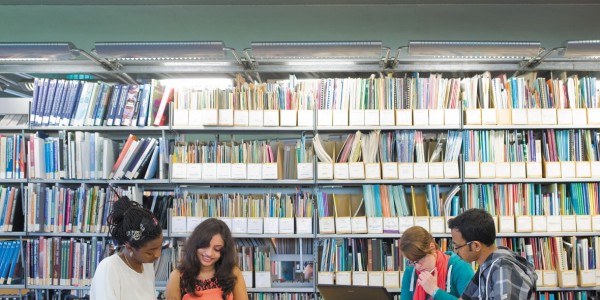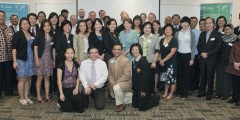Towards a pedagogy of capacity development
December 3, 2012
This third post reflecting on issues of inequalities of global knowledge production owes its existence to a coincidence. Sitting down earlier this week to start collecting my thoughts for a day to be spent with Michael Crossley from Bristol honing a research bid on our planned partnership with the University of the South Pacific, I …
Mapping the uneven landscape of academic knowledge production
November 15, 2012
In my previous KWBN blog reflecting on my recent visit to Fiji, I argued that we should see the global South as sites of theory generation, not just as providing exotic exceptions to “universal” Northern theory. However, I noted that this was far from the norm. Indeed, my starting point for my reflection was the …
Shooting Elephants on the International Branch Campus I
November 2, 2012
I have recently become preoccupied by two elephants. The first is the ‘elephant in the room’: the enormous problem which everyone knows about but which no-one wants to discuss because it is too vast even to conceive or articulate, much less resolve. Let sleeping elephants lie. The second elephant is the unfortunate beast in George …
Do we want knowledge without borders?
October 30, 2012
Preparing a workshop on writing for journals in Suva, Fiji, and working on a research bid with Pacific Island colleagues, I was struck by the realisation that I could only think of one journal article in the leading international and comparative education journals that had been written by an author from the region, and that …
Total Campus (TM)
October 4, 2012
In the previous post, ‘Post-Purchase Dissonance and the Higher Education Product’ we began to think about, specifically, international campus activity in relation to the unusually long and changing experience of the educational product. Interviews with student informants have consistently given even greater emphasis than we had anticipated to the importance of peer-to-peer support networks (formal …
Post-Purchase Dissonance and the Higher Education ‘Product’
The research literature on ‘Buyer Behaviour’, particularly in marketing studies, consistently draws attention to the whole buying process rather than just the moment of purchase decision. The function of marketing is to ‘prepare’ the buyer for the purchase, by informing or educating about choices, and steering towards the vendor’s own product. Once the product is …
A university’s ‘international’ brand must be more than just spin to attract the best academics
September 18, 2012
Universities are constantly bombarding us with their ‘global’, ‘international’ and ‘worldwide’ credentials. You can barely visit a website or pick up a prospectus without reading about their global reach, world changing activity or international impact. These assertions have become every much a part of their brand as academic excellence, outstanding research reputation and an exceptional …
Knowledge without Borders: A Malaysian Example
August 13, 2012
It was one of those happy, and totally unexpected, events. We were on our way to visit Universiti Utara Malaysia (UUM). We arrived at the airport, with a few hours to spare before our first meeting, and were wondering what to do with the time. In baggage reclaim we met Dzulkifli Abdul Razak, Prof. Tan Sri …
The global financial crisis and the internationalisation of higher education
July 25, 2012
This post was first published in the ‘From the Vice-Chancellor’s desk’ blog on January 20, 2012 I am often asked about the impact of the global financial crisis on the internationalisation of higher education. Given Nottingham’s unique global footprint, that is not a surprise. As the sub-title of Carmen Reinhart and Kenneth Rogoff’s outstanding book This Time …
The Nottingham Global Network
July 13, 2012
The growth in transnational higher education is well documented, with UK institutions playing a leading role in delivering degree programmes outside of their home market. International research collaborations have also seen significant expansion in recent years with more and more institutions looking to build strategic partnerships to enhance the quality of research and magnify its …











Recent Comments